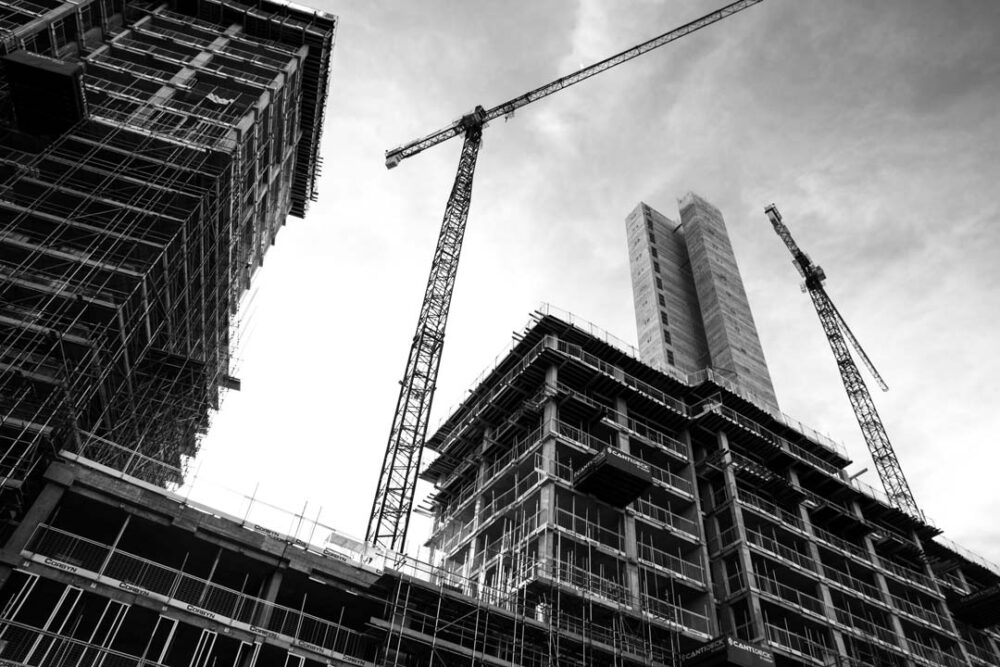The construction industry, with its inherent complexities and dynamic environments, is rife with potential hazards. Ensuring safety isn’t just a regulatory requirement; it’s a moral obligation to protect lives. Every brick laid, beam hoisted, or trench dug carries risks that can have dire consequences if not managed properly.
Beyond the immediate human cost, accidents can lead to project delays, legal repercussions, and reputational damage. Prioritising safety is not only about preventing accidents but also about fostering a culture where employees feel valued and protected. A safe construction site is the bedrock of a successful, reputable business.

COSHH Training
Control of Substances Hazardous to Health (COSHH) training is indispensable in the construction sector, especially when considering the myriad of materials that workers handle daily. One such material is concrete. While it’s a fundamental component in construction, if handled incorrectly, concrete can pose significant health risks. Wet concrete, for instance, is highly alkaline and can cause severe skin burns or dermatitis upon prolonged contact. Inhaling concrete dust, a byproduct of cutting or drilling, can lead to respiratory issues over time.
COSHH training equips workers with the knowledge to identify, manage, and mitigate these risks. These COSHH Assessment Templates from HS Direct make the task easier and simpler for both employers and employees. By integrating COSHH training and assessments into regular safety protocols, construction businesses not only ensure compliance but also create a safer, more informed workforce.
The Role Of Personal Protective Equipment
On any construction site, Personal Protective Equipment (PPE) stands as the last line of defence against potential hazards. From hard hats that shield against falling objects to safety boots that protect feet from punctures, the right PPE can make the difference between a close call and a catastrophic injury. High-visibility vests ensure workers are easily spotted amidst heavy machinery, while gloves guard hands against abrasions, cuts, and harmful substances.
Respirators and masks are crucial, filtering out harmful dust and particulates that can damage the lungs over time. Every piece of PPE is designed with a specific threat in mind, and its proper use is paramount. However, PPE isn’t just about equipment; it’s about fostering a culture of safety. Regular training sessions, equipment checks, and updates ensure that every worker understands the importance of PPE and uses it effectively to safeguard themselves and their colleagues.
A Startling Statistic
The construction industry, for all its advancements and innovations, still grapples with significant safety challenges. A sobering reminder of this is the statistic that 135 workers were tragically killed in work-related incidents in Great Britain in just one year. Such a figure isn’t just a number; it represents fathers, mothers, siblings, and friends whose absence leaves a void in the hearts of their loved ones. The construction sector, unfortunately, accounted for a significant portion of these fatalities.
These deaths underscore the pressing need for rigorous safety protocols, continuous training, and a proactive approach to hazard identification and mitigation. Every life lost is a stark reminder of the responsibilities construction businesses bear. It’s not just about erecting structures; it’s about ensuring that every individual returns home safely at the end of the day. The industry must rise to this challenge, prioritising safety above all else.
From understanding hazardous materials to donning the right PPE, every measure counts. The industry’s commitment to safeguarding its workforce is not just a duty but a testament to its values. Let’s champion a future where every worker returns home safely, every day.


















